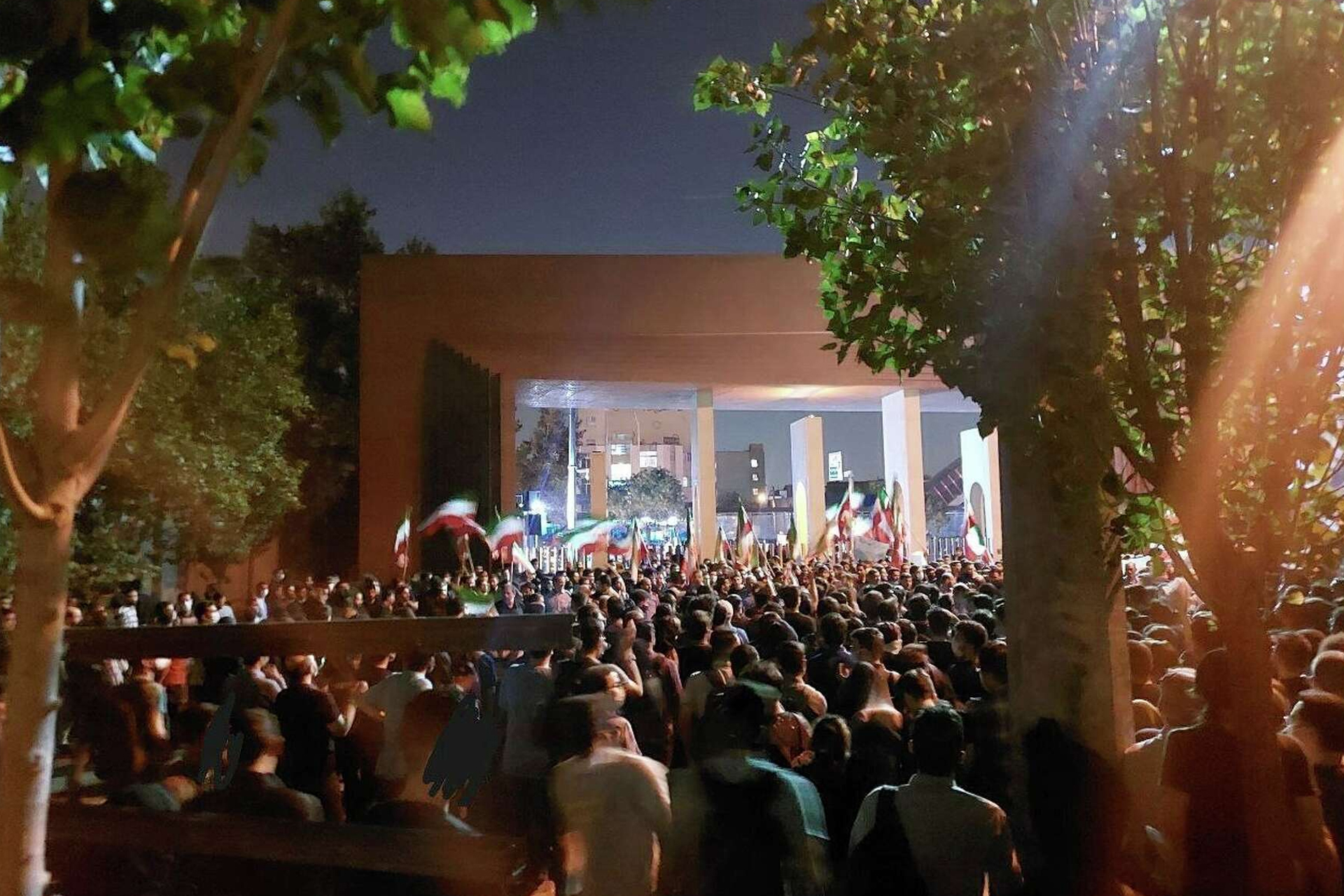Today, Saturday, the authorities in Iran carried out the death sentence by hanging two people who were convicted of killing a member of the Basij (mobilization) force associated with the Revolutionary Guards during the months-long protests, which raises the number of protesters who have been executed to 4 so far, and the new executions have received Western and international condemnation.
And the "Mizan Online" website of the Iranian judiciary reported that this morning the death sentence was carried out against Muhammad Mahdi Karami (22 years) and Sayyid Muhammad Hosseini (39 years) after they were convicted of killing Ruhollah Ajamian last November in the city of Karaj, west of Tehran.
And last Tuesday, the Supreme Court upheld the death sentence issued against them by a first instance court on the fourth of last December.
According to Iranian prosecutors, the dead man, Ruhollah Ajamian, was stripped of his clothes and killed by mourners who were celebrating the forty days of the protester, Hadith al-Najafi, who was killed during the protests.
In the same case, 3 others were sentenced to death, while 11 people were sentenced to varying degrees of imprisonment.
Muhammad Mahdi Karami and Seyyed Muhammad Hosseini were executed despite their families' appeal to the authorities and the campaign launched by international human rights organizations to avoid the implementation of the sentence issued against them.
Last month, the authorities executed two demonstrators after convicting them of several charges, including murder, "haraba" and "corruption on earth."
Condemned reactions
In the reactions, the European Union, in a statement issued by the office of the European Union's foreign policy coordinator, Josep Borrell, expressed its shock and condemnation of the execution of other demonstrators in Iran.
The European Union said that the execution of the two men is another indication of what it called the Iranian authorities' violent suppression of civilian demonstrations, calling on the Iranian authorities to immediately end the issuance and implementation of death sentences against demonstrators.
France also strongly condemned the execution of other demonstrators in Iran, while the Netherlands said it would summon Tehran's ambassador to protest the new executions.
In the same context, the United Nations Human Rights Office condemned the execution of Karami and Husseini, saying that it was the result of "unfair trials based on confessions extracted by force."
As for Amnesty International, it denounced what it called the unfair and speedy trial of the two men, saying that it did not resemble a "real judicial procedure."
Protests have erupted in Iran since last September, following the death of the girl, Mahsa Amini, while she was being held by the morality police in Tehran on charges of wearing "indecent dress."
The "Human Rights Organization in Iran" reported that Muhammad Mahdi Karami and Syed Muhammad Hosseini were tortured, and said that they were sentenced to death after a "sham trial." Hosseini's lawyer also spoke of the torture of his client, which was denied by the authorities.
Khamenei asked the police chief, Ahmad Reza Radan, to improve the capabilities of the security establishment (French)
Police chief
Meanwhile, Iranian Supreme Leader Ali Khamenei appointed today, Saturday, Brigadier General Ahmad Reza Radan, as the new commander of the Iranian police, after the end of the duties of its current commander, Brigadier General Hossein Ashtari, who had held the position since 2015.
In a message published on his website, Khamenei called on the new police chief to obtain the people's satisfaction in terms of maintaining security and providing public comfort, working to improve institutional capabilities, and training specialized police for the various security departments.
The appointment of Radan - who previously held the position of Deputy Commander-in-Chief of Police - comes in the midst of the protests, which the authorities describe as riots behind which foreign forces hostile to Iran stand.
In 2010, the US Treasury included him on the sanctions list for "violations of human rights" during protests that took place in 2009 following Mahmoud Ahmadinejad's re-election as president.
The new commander of the Iranian police and his predecessor began their military career in the Iranian Revolutionary Guard.

